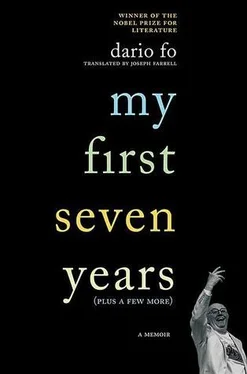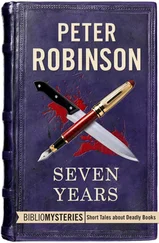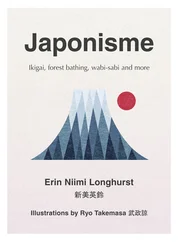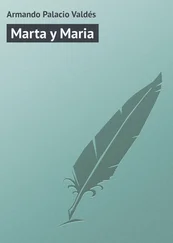Dario Fo - My First Seven Years (Plus a Few More)
Здесь есть возможность читать онлайн «Dario Fo - My First Seven Years (Plus a Few More)» весь текст электронной книги совершенно бесплатно (целиком полную версию без сокращений). В некоторых случаях можно слушать аудио, скачать через торрент в формате fb2 и присутствует краткое содержание. Год выпуска: 0101, Издательство: St. Martin's Press, Жанр: Биографии и Мемуары, на английском языке. Описание произведения, (предисловие) а так же отзывы посетителей доступны на портале библиотеки ЛибКат.
- Название:My First Seven Years (Plus a Few More)
- Автор:
- Издательство:St. Martin's Press
- Жанр:
- Год:0101
- ISBN:нет данных
- Рейтинг книги:3 / 5. Голосов: 1
-
Избранное:Добавить в избранное
- Отзывы:
-
Ваша оценка:
- 60
- 1
- 2
- 3
- 4
- 5
My First Seven Years (Plus a Few More): краткое содержание, описание и аннотация
Предлагаем к чтению аннотацию, описание, краткое содержание или предисловие (зависит от того, что написал сам автор книги «My First Seven Years (Plus a Few More)»). Если вы не нашли необходимую информацию о книге — напишите в комментариях, мы постараемся отыскать её.
My First Seven Years In a series of colorful vignettes, Fo draws us into a remarkable early life filled with characters and anecdotes that would become the inspiration for his own creative genius.
My First Seven Years (Plus a Few More) — читать онлайн бесплатно полную книгу (весь текст) целиком
Ниже представлен текст книги, разбитый по страницам. Система сохранения места последней прочитанной страницы, позволяет с удобством читать онлайн бесплатно книгу «My First Seven Years (Plus a Few More)», без необходимости каждый раз заново искать на чём Вы остановились. Поставьте закладку, и сможете в любой момент перейти на страницу, на которой закончили чтение.
Интервал:
Закладка:
The ritual of sales and farce was repeated for the whole of the merchandising round. Every so often, Grandfather would make me get down from the horse’s back and lift me up onto the cart, on top of the baskets of melons and watermelons. When the women asked who the child was, he would go into a rigmarole of being astounded at seeing me there for the first time. ‘I have no idea who this little ruffian is, or where he came from,’ he said. ‘A while back, a girl handed him over to me, telling me he was my own flesh and blood. The father is supposed to be one of my five sons, but the girl couldn’t remember which one. “What do you mean? How did it happen? When did all this take place?” I asked her. And the girl replied: “In the woods near the Po … I was walking along the banks of the river, picking mushrooms, long thin ones and little stubby ones. All of a sudden, what a bit of luck! I saw an erect one, as firm as a rod, protruding from the ground. A big juicy porcino! I love that kind and couldn’t wait to grab hold of it, but I banged my head on the branch of a poplar tree so hard that my knees buckled and I sank to the ground. As I did so, I got skewered by this hard rod of a mushroom. A warm flame shot through my whole body from feet to brain. Ye gods, what a feeling! I stayed where I was, stunned. Then I heard a loud groan, and before my very eyes, in the thick grass, I saw emerge first a face, then shoulders and the rest of a body. Behind my bottom, I espied two thighs and two legs: ‘Holy God,’ I think to myself, ‘a mushroom born of a man!’ The youth with the mushroom, or the skewer-woman equipment, sighed and groaned: ‘Thank you, pretty maiden!’ And I said to him: ‘What are you doing here buried in the shrubbery?’ ‘I was splashing about naked in the water, and had covered myself with leaves to get dry … I fell fast asleep, and when you suddenly plopped yourself down on my pecker, I thought I was going to die.’ ‘And what if you’ve made me pregnant?’ ‘We could always call him Mushroom!’” The girl said she’d had a hard time getting away from that scoundrel. “I pulled my sickle from my bag and shouted to him: ‘All right. I’ll give you a son, but in return I want the mushroom,’ and with one chop, off it came.” And here it is,’ yelled Bristìn. ‘Now then ladies, this is your chance!’ and so saying he held up a firm, erect, ruby-red mushroom. ‘This is a satisfaction-guaranteed mushroom, but don’t expect me to sell it. However, I will agree to hire it out a week at a time. Plant it in your woods and fall on top of it whenever your fancy takes you.’
I need hardly say the women laughed long and hard. They joined in the fun, and went off with the mushroom, pretending to fight over it.
Lucian of Samosata said: ‘Everything depends on the masters you have had. But watch out. Often you do not choose your masters, they choose you.’ My grandfather Bristìn had chosen me as his pupil in clowning when he put me on the back of that gigantic nag as though I were one of the seven dwarves.
* * *
But Bristìn was no mere buffoon. One day I discovered that his orchard was an academy of agrarian science. In addition to the transplants, he had accomplished incredible marriages between different species of tomato, peperone and cucumber.
‘You see,’ he explained to me, while taking a sharp knife to those vegetables as though they were the bodies of animals he wanted to cut open to show me their structure, ‘we’ve got male and female here, too, not to mention various hybrids. All of them, fruit and vegetable alike, are creatures like us. They are sensitive to fear and perhaps even pain, they feel attraction and repulsion among themselves just as men and women do. There are fruits which fall in love normally, and others which lose their head for creatures of another species. Even though I’ve tried my level best, I’ve never managed to get a persimmon and a papaya to join together in loving union!’
Professor Trangipane, who taught in the Faculty of Agrarian Science at Alessandria, was a frequent visitor, always accompanied by students who were spellbound by the practical lessons, spiced with comic turns, my grandfather imparted to them.
One day, while he was giving a lecture in the greenhouse, the sky all of a sudden turned black. Bristìn put two fingers in the corners of his mouth and let out a shrill whistle. His sons, fully aware of what was required of them, came running out of the carriage sheds. They stretched a covering, a gigantic fine-meshed net, out in a circle. Bristìn made sure everyone was involved in the operation, students and farm workers alike. Guy-ropes with pegs at the end hung down from high poles surrounding the greenhouse, and the net was laid along that line of poles. Following my grandfather’s orders, the men started to tug at the guy-ropes in twos or threes. The net was swiftly hauled up and pulled out like a circus big-top to cover the glass of the greenhouse and give it full protection. Bristìn and his sons hammered in the stakes at top speed and secured the bottom end of the cover to the ground. The whole set-up was hardly in place when a terrible wind, whistling through the mesh of the net, got up, followed by thunder and lightning and a hail storm which sent chunks of ice as big as eggs bouncing off the net as though they were tennis balls. Everyone else rushed for shelter under the portico, but Bristìn took me by the hand and dragged me inside the greenhouse: ‘Come and I’ll show you a sight you won’t forget even if you live to be a hundred.’
Under the glass, it seemed as though the world were coming to an end. As they struck against the net and bounced off it, the hailstones generated indescribable sounds, while the vibrating panes of glass produced howls which were in turns terrifying and entrancing. The flashes of lightning, reflected on the greenhouse glass, had their brightness multiplied as in a distorting mirror at a fairground.
When later at school I encountered for the first time the adventure of Dante’s Ulysses, strapped to the mast of his ship, awestruck and bewitched by the special effects of sound and light organised by the Sirens, I could not help connecting that magical situation with the spectacle I had witnessed as a boy inside that crystal nursery, where the storm performed for us a concert that presaged the end of the world.
‘You’re a madman, fit to be tied,’ screamed my grandmother with that thin voice of hers. ‘Don’t you realise what would have happened to you and that poor boy if the wind had blown the net away? The whole glass structure would have shattered to pieces and fallen on top of you.’
Bristìn, normally so strong and sure of himself, bowed his head before that fragile, delicate little woman. ‘Yes, you’re right, Maria. I was a bit thoughtless … in fact completely thoughtless. But to experience certain moments, you’ve got to take risks.’
CHAPTER 6. Back in Oleggio
After several months, Uncle Beniamino, the youngest of my mother’s brothers, was given the job of taking me home. As I was leaving, Granddad lifted me onto the back of that great horse, Gargantua’s stallion. ‘We’ll let him take you to the station!’
I took hold of the reins, but made no effort to manoeuvre with them. I had long since discovered that there was no point in pulling the reins up and down since the horse made up its own mind about where it was supposed to turn. For years, it had been padding at least three times a week along the same roads that led to the farms and villages where my granddad dispensed his chatter and wares. They had put one over me, but I refused to give them the satisfaction of knowing that I knew, and so I carried on unperturbed, mimicking the various actions of driving the cart.
Читать дальшеИнтервал:
Закладка:
Похожие книги на «My First Seven Years (Plus a Few More)»
Представляем Вашему вниманию похожие книги на «My First Seven Years (Plus a Few More)» списком для выбора. Мы отобрали схожую по названию и смыслу литературу в надежде предоставить читателям больше вариантов отыскать новые, интересные, ещё непрочитанные произведения.
Обсуждение, отзывы о книге «My First Seven Years (Plus a Few More)» и просто собственные мнения читателей. Оставьте ваши комментарии, напишите, что Вы думаете о произведении, его смысле или главных героях. Укажите что конкретно понравилось, а что нет, и почему Вы так считаете.












